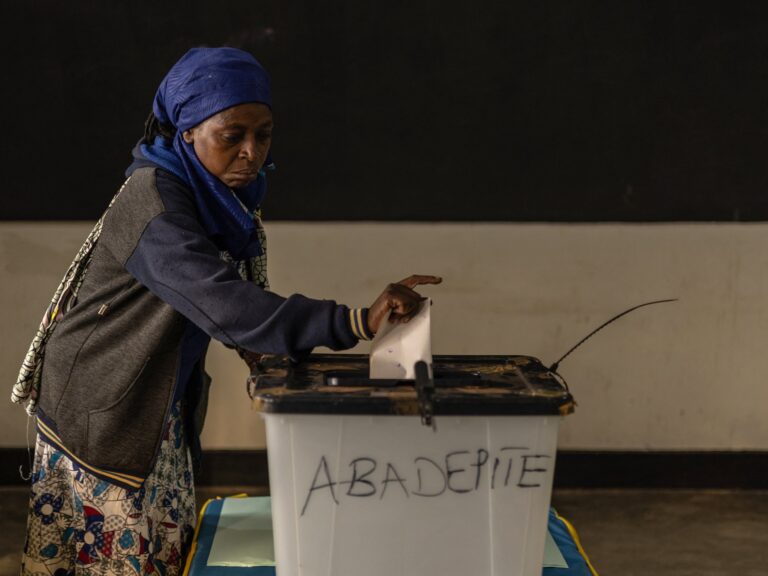President Kagame, Rwanda’s de facto leader since 1994, has only two challengers after a court barred his most prominent critics.
Rwandans have begun voting in presidential and parliamentary elections that are expected to extend longtime leader Paul Kagame’s term in office for another five years.
Polling stations opened across the East African country at around 7am local time (5am GMT) on Monday, and more than nine million people are registered to vote, according to AFP news agency.
Kagame, Rwanda’s de facto leader for three decades, is all but certain to remain in office, facing just two candidates after a Rwandan court barred his most prominent critics from running.
The outlook is similar to the last election in 2017, when Kagame swept away his rivals with nearly 99% of the vote.
Who will face off against Kagame?
Frank Habineza, leader of the Rwanda Democratic Green Party, and independent candidate Philippe Mpaimana were the only two of the eight candidates approved to run against President Kagame.
A Rwandan court has rejected an appeal by opposition leaders Bernard Ntaganda and Victor Ingabire to have criminal records quashed that effectively disqualified them from voting.
The NEC also banned Diane Rwigara, a prominent critic of President Kagame, from running for office for the second time, citing paperwork issues.
Ahead of the elections, rights group Amnesty International said Rwanda’s opposition faced “severe restrictions, intimidation, arbitrary detention, prosecution, trumped-up charges, killings and enforced disappearances.”
Kagame’s Legacy
Sixty-five percent of Rwanda’s population is under 30, and Kagame, seeking a fourth term, is the only leader most Rwandans know.
The 66-year-old is credited with rebuilding a traumatized nation after a 1994 genocide by Hutu fighters killed some 800,000 people, mostly Tutsis but also moderate Hutus.

But his regime has been widely criticized by human rights groups for being authoritarian and for suppressing the media and political opposition through arbitrary detentions, killings and enforced disappearances.
Abroad, the country faces accusations of fuelling instability in neighbouring Democratic Republic of Congo, where a UN report has said Rwandan troops are fighting alongside M23 rebels in the conflict-hit east, a charge denied by the Kigali government.
Kagame also oversaw controversial constitutional reforms that shortened presidential terms from seven to five years and reset the term limits of Rwanda’s leaders, allowing them to rule until 2034.
But despite much criticism, President Kagame enjoys strong support at home after overseeing an average economic growth rate of 7.2 percent between 2012 and 2022 and the development of infrastructure such as hospitals and roads.
“He has done great things. He helped our children go to school, he increased the number of teachers, he gave us health insurance,” Venantia Nyirangendo, 51, said at a rally of Kagame’s Rwanda Patriotic Front (RPF) party on Saturday.

Parallel parliamentary elections
For the first time, Rwanda will hold parliamentary elections at the same time as the presidential election, with more than 500 candidates vying for 80 seats in the lower house of parliament.
Of those, 53 are elected by popular vote. The RPF currently has 40 seats, its allies have 11 and Habineza’s Greens have two.
Another 24 women, two youth and one person with a disability will be elected. All candidates running for these seats must be independents, and indirect elections will take place on Tuesday.


